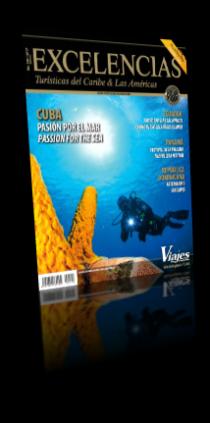- Luxury Nautical.
FOR SOME FANCY HOTELS, NAUTICAL TO-DOS PROVIDE INCREASINGLY STRONGER ELEMENTS TO BOTH STREAMLINE THEIR VALUABLE OFFERS AND ACHIEVE A POTENTIAL INCREASE IN BUSINESS VOLUMES
A breathtaking yacht is plowing the turquoise sea under a sweltering sun. Chill-out music blaring in the background, champagne bottle resting among ice cubes and good companionship. Fewer luxury experiences can pan out to be more memorable than those dished out by the nautical sphere.
All fancy hotels lined up along the coastline offer their guests the possibility of conducting leisure to-dos in the sea, ranging from such classics as kayaking, catamaran rides, scuba diving, water bikes or windsurfing, to yachting and high-sea angling. But only a handful of them really cash in on the magnificent opportunities the new nautical products that have sprung up in recent years have to offer.
I’m referring to such technically easy equipment as Paddle Surf, or others more sophisticated and exclusive as Flyboard, Jet-Lev, Jet-Surf, Blade Fish, Aqua Glide or the submarines, just to name but a few.
Fancy hotel execs go at great lengths in their effort to make a competitive difference, adding new elements in their properties in order to give their guests a nicer stay. In this sense, nautical sports open up some interesting elements, not only in terms of streamlining their valuable offers, but also in the face of a potential increase of their business volumes.
In the luxury industry, the price is not the name of the game, so therefore, hotel executives must zero in on the optimization of the experience guests live out in their properties by implementing strategic actions in the medium and long runs. In this respect, the hotel can mull over either the purchase or rental of nautical equipment, and even move beyond its boundaries by cutting partnership deals with companies located in its zone of influence.
As a first step, it’s fundamental to know our current customers and analyze the traveler profile we want to lure. For a millennial or a young guest, Blade Fish could be extremely attractive, while for seniors or newlyweds, it’s hard to believe they could possibly turn down a ride aboard a Riva boat. Either way, it’s fundamental to assess the digital demand of nautical services through the study of keywords.
In the nautical offer of any fancy hotel, purely sporting activities and others that call for no great physical demand must be delivered neck to neck. As to the latter, we must “take things up a notch” by combining sailing or motor boating with elements that can actually improve the stay experience of the guests. Gastronomy is a good case in point.
Knowing the natural environment and the information that we have about our guests, coupled with our own creativity, should allow us to come up with one-and-only, customized and unforgettable onboard experiences.
A superb offer of nautical services in a hotel won’t generate demand unless it is properly touted. In this sense, it’s important to implement it and develop marketing and communication actions that really make it visible.
On the other hand, it’s essential for public institutions that strategically put their wise money on nautical sports to build the necessary infrastructure that could eventually foster its utmost development. In the same breath, and in collaboration with the local business community, the protection of the local environment must be high on the list of top priorities. Hotel companies ought to sketch out real RSC actions by actively dragging tourists into those environmental protection policies that, if carried out in a clever and straightforward way, will surely have repercussions on the return of investment as far as stay experiences, loyalty practices and good reviews are concerned.
The luxury sector must lead the way in terms of initiatives that could make the world a far more respectful and just place for both people and animals, as well as for the rest of the beings that dwell on the planet. This is a feasible objective as long as the public and private sectors work hand in hand, conceiving nautical sports as a strategic element for the sake of sustainable development and the optimization of a tourism-value offer in a destination, a region or a country.





























































































































